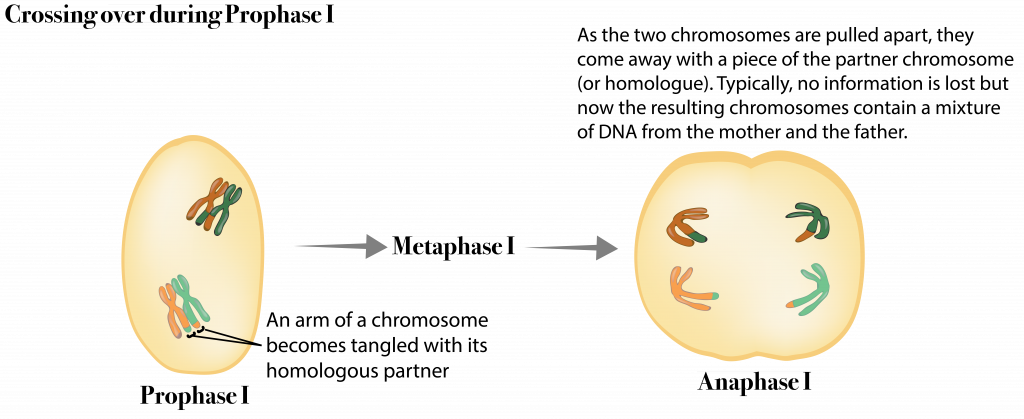6.7 Further genetic diversity is generated through crossing over
Independent assortment allows for the creation of genetic diversity without the dangers of mutation. That is not the only force that generates diversity. Crossing over or is another way that novel and diverse combinations of DNA are created.

Crossing over occurs in prophase I of meiosis, when the homologous pairs of chromosomes are together in tetrads. It is typical for an arm of one chromatid to get tangled with one of its homologues’ chromatids. During disentangling in anaphase I, when the homologous pairs separate, the chromosomes will sometimes exchange portions of DNA. For example (and as depicted below), a chromosome that was originally entirely from your father could get tangled with your mother’s corresponding chromosome, only to leave the tangle with most of the chromosome coming from your father but part of one of the chromatids coming from your mother’s chromosome.
Although this process may seem chaotic, it is not random. Even when there is trading of DNA, each chromosome usually leaves with as much DNA as it started with, and the pieces of DNA that are swapped tend to contain complementary genes. Crossing over allows for the rearrangement of genetic code within the chromosome. In other words, in addition to the 223 different cell types that can be created because of independent assortment, crossing over is an additional way your cells generate diversity in sperm and egg cells during meiosis.
Check Yourself

